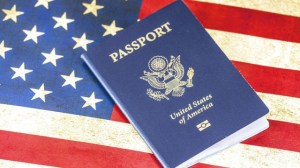Govt sees work permits as solution to influx problem
NEW DELHI, September 17: While the Delhi Police started visiting slums across the Capital in mid-August to flush out illegal Bangladeshi ...

NEW DELHI, September 17: While the Delhi Police started visiting slums across the Capital in mid-August to flush out illegal Bangladeshi immigrants, the home ministries of India and Bangladesh held two-day talks aimed at greater economic integration between the two countries.
The result: The Union Home Ministry is now toying with the idea of giving illegal Bangladeshi migrants work permits. Officials in North Block are of the view that Bangladeshis are the cheapest labour in households and industry, so why drive them away.
The radical change in thought doesn’t stem from economic reasons alone. The officials add that realisation has dawned that repatriating illegal settlers would mean sending back a large population of Hindus.
The introduction of work permits would also quieten those parties opposed to deportation. The Delhi Government has had a selective policy on illegal immigrants. Its deportation drives only target Bangladeshis, leaving alone the teeming Nepalese population.
“The procedure of removal is only an eyewash. The BJP won’t touch the Nepalese because they are Hindu and a potential vote bank. But, you can’t have separate laws for different foreigners,” says a Supreme Court lawyer, who last year organised a movement against the Government’s repatriation drive.
A Nepalese colony in Okhla was bulldozed by the DDA and MCD last year, but not for the same reason. A trade union leader in the area said: “It was not demolished because they were foreigners. Some politician wanted the land.” MCD officials were not available for comment.
The deportation of illegal immigrants has been a task that takes on gargantuan proportions as the issue has always been based on citizenship.
According to the Indira Gandhi-Mujib-ur-Rahman pact, March 25, 1971 is usually treated as the cut-off year, and all those who came to India after that date are taken to be foreigners. This was an attempt to gently push the millions of Bangladeshi refugees in India back across the border.
However, deportation drives have included those refugees who came to India before 1971. They have citizenship certificates, which were given to them by the Government of India.
According to the Citizenship Act, 1955, anyone born in India between 1950 and 1986 automatically becomes an Indian citizen, irrespective of the citizenship status of the parents. Many Bangladeshis have children who were born here.
A lawyer says: “It is not so simple anymore. The Citizenship Act was amended in 1986. But even after this, if either parent is an Indian citizen then the child automatically becomes an Indian.” Many Bangladeshis who entered the country illegally, have married Indians and now have children.
Deportation takes place under Section 3(2) of the Foreigners Act. But there are various steps that have to be followed by the concerned authorities. First, the nationality of the person has to be determined. Without this, deportation by the state government is not valid. Next, the person has to be issued a notice to quit India. Thirdly, the person has to be given an opportunity to be heard and explain why he or she should not be deported. Only then can a court order for deportation be passed.
But Bangladeshis who were deported and have managed to come back say that they are randomly picked up by the police, kept in jail for days and then packed off to the border in trains, without their documents being verified.
The citizenship issue has confused the deportation issue. A legal expert said: “Borders across the world are opening up. People choose to move for economic reasons. Indians go to the Gulf or move East in search of better employment opportunities. The Bangladeshis who come here do fill an essential need. So they should be issued work permits, and the Government should send back those people who do not have permits”.
Photos





- 01
- 02
- 03
- 04
- 05


























